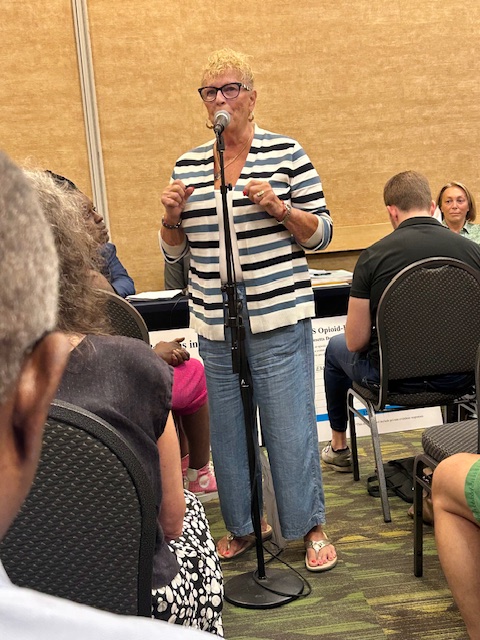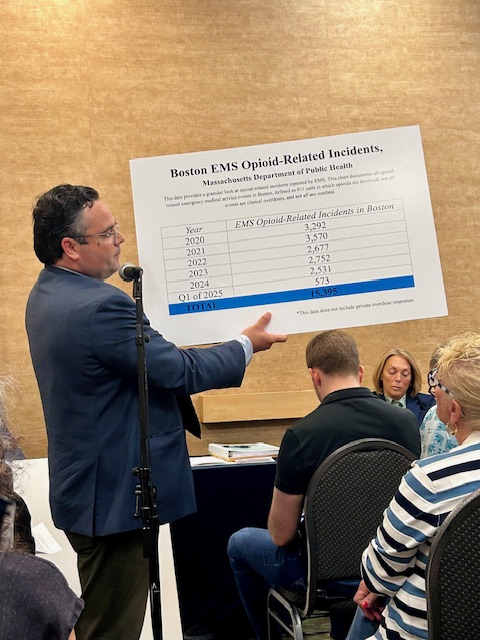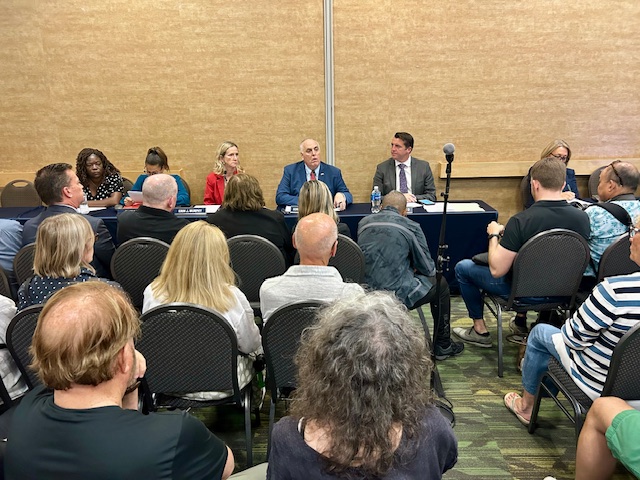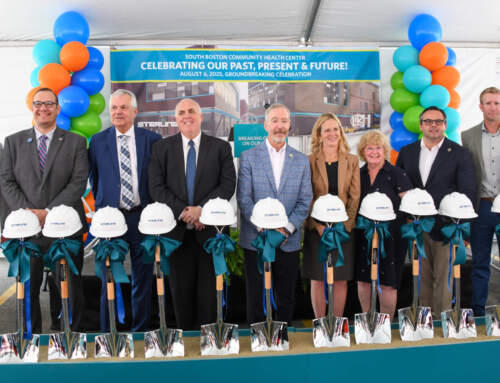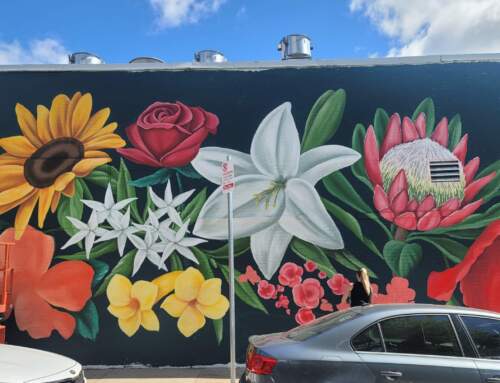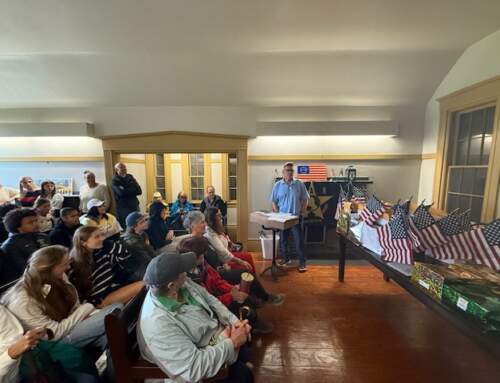by Rick Winterson
Recently, a vitally important public hearing took place. In an unusual step, the Boston City Council’s Committee on Public Health, Homelessness, and Recovery held this hearing off-site – not at City Hall. District 3 City Councilor John FitzGerald chairs this Committee and he decided that an offsite public meeting was important. The hearing was urgent, controversial, and if it results in effective action, will ultimately have been successful.
Docket #1547, a resolution proposed by District 2 City Councilor Edward Flynn, was the hearing’s single topic. This docket reads, “Resolution to declare Mass. and Cass and impacted neighborhoods a Public Safety and Public Health Emergency and a Humanitarian Crisis.” And there’s little or no question that drug abuse is now a crisis in Boston!
Fittingly, the off-site hearing was held in The Hampton Inn & Suites. The Inn is located at 811 Massachusetts Avenue and it sits directly across Mass. Ave. from the Boston Medical Center (BMC), where the original Mass. and Cass first began. Melnea Cass Boulevard intersects Mass. Ave. at that point, which is where, why, and how the nicknames “Mass. and Cass” and “Mass/Cass” originated
Over ten years back, in 2014, Mass/Cass, along with its tent-dwelling drug users, were relocated from BMC to Atkinson and Southampton Streets. Unfortunately, that location was quickly allowed to become a huge drug use-and-abuse center – a real Boston crisis. This crisis not only continues now, but it has also become more widespread. After the Atkinson and Southampton location was shut down and cleared away in December, 2024, the area’s epidemic of drug abuse spread into all of the surrounding neighborhoods. Massive increases in public drug use are now occurring in Boston’s South End neighborhood. Around South Boston, both Andrew Square and Moakley Park, as well as the South Bay Shopping Center, are experiencing much more “open air” drug use. These are the facts that led to Councilor Flynn’s proposed Docket # 1547, which then resulted in last Thursday evening’s hearing.
The hearing was scheduled from 6 to 9 p.m. in a Hampton Inn meeting room that became filled (and very much overcrowded) before it even started. Councilor FitzGerald opened the hearing by stating the community was being given a chance to speak, although he cautioned that “Mass/Cass problems won’t be solved tonight.” Councilor Flynn followed by saying, “The crisis is happening. I came to listen.” And he insisted that we must hire more police officers to handle the drug problem. At-Large Councilor Erin Murphy thanked Flynn for proposing Docket #1547 and pointed out that drug dealing is becoming city-wide in Boston. School children are accidentally stepping on used needles everywhere. State Sen. Nick Collins presented graphic charts, one of which showed EMS opioid-related incidents in Boston since 2020. Although these have been decreasing, Boston’s opioid incidents numbered well over two thousand in 2024 (2,531, to be exact!).
Public comments were taken at various intervals during the hearing. Many residents spoke vehemently about the need for more drug prevention. All of these participants recognized that drug addicts need treatment; their outright anger (and it was vehement) was focused upon the drug dealers, who do their drug dealing in the open, often in full public view. ASCA (Andrew Square Civic Association) President Linda Zablocki stated she was “disgusted” at how poorly the City is handling the drug problem. Other comments were all negative and critical of the City’s officials and employees. There was a hum of disapproval when City employees admitted that they hand out 81,000 needles for opioid use every month. Even though comments by the City’s residents took much less time than talking by City officials, the residents at the hearing, especially from the South End, made their point emphatically clear by insisting, “We can’t wait any longer!”
We certainly hope that Boston’s elected officials and employees will take immediate action to eliminate Boston’s drug problem. Solutions are way overdue.


